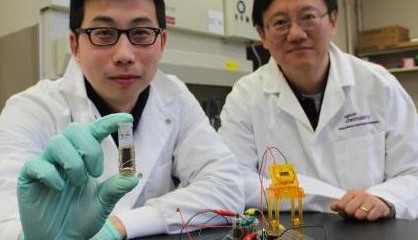Battery Recharging… One Lump or Two?

A research team at Virginia Tech has produced a low-cost rechargeable battery that runs on sugar. They are not the first in the field to develop a sugar battery but the energy density of their design shows an order of magnitude improvement over existing sugar-based battery technology.
The findings from Y.H. Percival Zhang, an associate professor of biological systems engineering in the College of Agriculture and Life Sciences and the College of Engineering, were published in the journal Nature Communications. According to Zhang "Sugar is a perfect energy storage compound in nature, so it's only logical that we try to harness this natural power in an environmentally friendly way to produce a battery".
Conventional batteries use toxic elements and heavy metals which by careless disposal pose a threat to the health of generations to come. The sugar battery combines maltodextrin (a polysaccharide made from partial hydrolysis of starch) with air to give electricity and water. "We are releasing all electron charges stored in the sugar solution slowly step-by-step by using an enzyme cascade" Zhang said. In this latest development, Zhang and his team constructed a non-natural synthetic enzymatic pathway that strips all charge potentials from the sugar to generate electricity in an enzymatic fuel cell. Low-cost biocatalyst enzymes are employed instead of the costly platinum used in conventional cell technology. Zhang hopes that within three years his battery will be powering cell phones and mobile devices.
